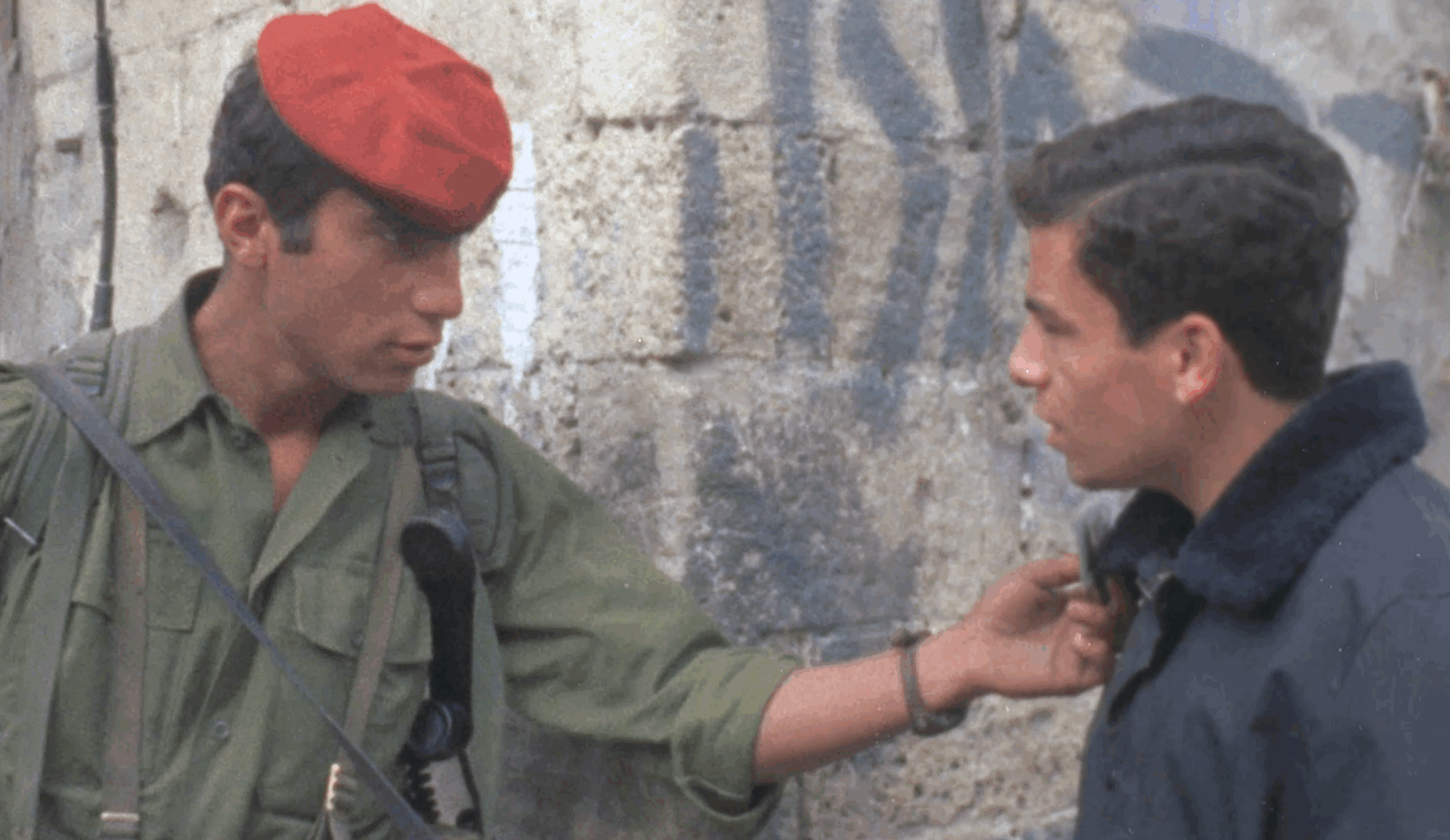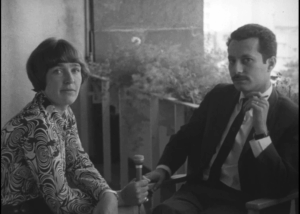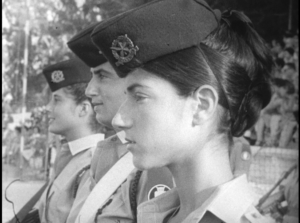It was once Sweden’s only news broadcast — what did it say about Israel?
A new documentary shows how Israel and Palestine were portrayed on STV from the late ’50s to the late ’80s

Identity card check-up in the West Bank in 1975. Courtesy of Icarus Films
The team behind Israel Palestine on Swedish TV 1958-1989 bares it all with the title of their documentary. It is, in fact, three-and-a-half hours of footage about the conflict from the Swedish public broadcaster Sveriges Television AB (SVT), stitched together in mostly chronological order.
SVT was founded in 1956 and held a monopoly on news broadcasts in Sweden until the early ’90s, when the commercial channel TV4 was launched. The intention behind SVT programs was to present impartial news produced solely by Swedes.
In the two years since the beginning of the current war, there’s been a renewed interest in understanding the history of the Israeli-Palestinian conflict. For those well-versed in the region’s history, they likely won’t learn anything new here. For those who don’t know much, it’s a good crash course — if one considers three-and-a-half hours to be succinct.

The film, directed by Göran Hugo Olsson, documents many major developments that happened in Israel during those three decades, including big waves of American immigration in the ’60s, economic growth, and, of course, the 1967 and Yom Kippur wars. Although the early footage focuses on Israel’s impressive agricultural projects and the modernization of the country’s major cities, as the years go on, the increasing focus is on the plight of Palestinians in Lebanese refugee camps and the Gaza Strip, as well as political unrest within Israel.
The film opens with the statement that archival material “doesn’t tell us what really happened — but says a lot about how it was told,” so the broader implications of the footage are left up to the viewer’s interpretation. Some may see a welcome, growing awareness of Palestinian suffering. Others may see overly harsh criticisms of Israeli policies that disregard the country’s security issues. With no elaboration or editorializing, it doesn’t feel like the film is helping clarify or challenge the audience’s preconceived notions about the conflict.
And though the footage is Swedish, it’s unclear what, if anything, that lends to the conversation. There is barely anything in the film about Swedish attitudes towards Israel, though we get a peek into diverging viewpoints during a 1964 debate between diplomat Gunnar Häglöff and political scientist Herbert Tingsten about the issue of Palestinian refugees. In a 1968 broadcast, two Swedish journalists question Israeli Deputy Prime Minister Abba Eban about the Israeli government destroying Arab homes. There are also interviews with Swedish soldiers from the United Nations who were stationed at a former railway station on the border between Gaza and Egypt in 1975. They have little to say about the conflict, however, and are more interested in discussing how they can build a sauna, a luxury from home they can’t live without.

How the Swedish government or its citizens have felt about Israel over the years remains strangely obscured. Whatever impact this footage may have had on Swedish-Israel relations and how these broadcasts were received is never discussed. It’s especially unfortunate that the film offers no way to compare the countries’ past relationship to current diplomatic tensions around Israel’s treatment of Swedish activist Greta Thunberg.
With the humanitarian crisis in Gaza growing more dire and the future of Israel’s democracy becoming an increasingly pressing issue, one wonders what can be gained from the rehashing of history on view in Israel Palestine on Swedish TV. The documentary primarily underscores a point most people already understand by now: The situation in Israel and Palestine is complicated. It’s violent. It feels never-ending. Most people probably don’t need to watch a three-and-a-half hour documentary to tell them that.
The documentary Israel Palestine on Swedish TV 1958-1989 opens at Film Forum NYC Oct 10.
















